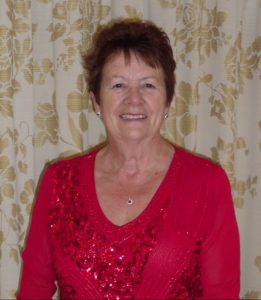After experiencing persistent symptoms that weren’t normal for her, Christine was diagnosed with pancreatic cancer. Here, she tells her story and explains her advice for anyone experiencing something similar.
Towards the end of January 2019, my entire body began to feel itchy. I tried everything to stop it, from soothing sprays to creams and antihistamine tablets, but nothing worked. I wasn’t in any pain anywhere, but I felt maybe a little more tired.
On 1st February at around 3 am, I couldn’t stand the itching anymore, and asked my husband to take me to A&E, where I’d hoped they’d give me a strong antihistamine injection or some tablets to help. However, the young doctor who saw me insisted on doing a blood test, which I think saved my life.
After waiting a while, I received my results. The doctors said there may be a blocked liver duct, but I’d need more tests to confirm this. I was allowed to go home but would return for CT scans and MRI appointments. On Monday morning, I felt ‘out of sorts’ and fainted at home. Martin, my husband, took me back to the hospital, where they kept me in for 5 days to do some tests.
Over the next few weeks, I had various other tests done. I also started being jaundiced and my urine was much darker than usual. It was evident something was seriously wrong, so an appointment was made to see the consultant at Castle Hill.
The consultant at Castle Hill confirmed I had pancreatic cancer and was faced with two options. I could either have a Whipple’s procedure, which would give me at least another five years, or do nothing, which would leave me with five to eight months.
I returned for further scans the next day and would be back in hospital on the 13th March for surgery on the 14th. I brought an overnight bag with me for my scans, so the consultant decided to keep me in until the next day for my pre-op tests. However, whilst on the ward, I needed rehydrating, and was kept in the hospital until my operation.
My operation, which required two surgeons, lasted for 10 hours and I spent 10 days in the Intensive Care Unit (ICU) until finally arriving home on the 5th April.I felt isolated without the ward staff but was very well looked after by Martin and by friends who would do anything for us. Some kind friends had given us a hospital bed to use at home, and Martin made a bedroom for me in the dining room. I actually stayed downstairs until January 2020!
When I left the hospital, I was given a prescription of Creon tablets, which is a medication to replace the enzymes usually made by the pancreas to break down food. I have to take these tablets with everything I eat.
I also began chemotherapy in June 2019, which I had for six months. I recovered well from this and my main problem since has been with my digestive system. I have learned to live with this, however, and I am hoping to speak to the dietician again to see if anything can be done to ease my digestive problems.
”I am now 20 months on from the major surgery and delighted to say I am in remission.
I still see my oncologist every four months to have my bloods checked, and then every six months for a CT scan.
If anyone has anything ‘different’ happening to them, i.e. it’s not normal for you, seek professional advice. Although it pays to talk things over with family and friends and look online, you can’t believe everything you’re told or see on the internet. Speak to your GP as they have the experience and knowledge to help you best. Staying positive helped me with my recovery, so I’d always recommend that!
Symptoms of pancreatic cancer can include:
- the whites of your eyes or your skin turn yellow (jaundice), you may also have itchy skin, darker pee and paler poo than usual
- loss of appetite or losing weight without trying to
- feeling tired or having no energy
- a high temperature, or feeling hot or shivery
For more information, go to https://www.nhs.uk/conditions/pancreatic-cancer/.

